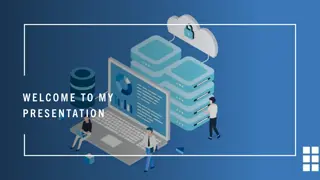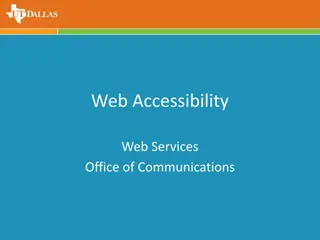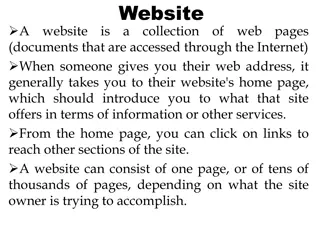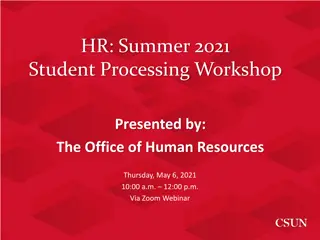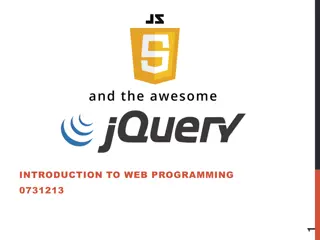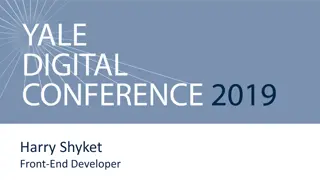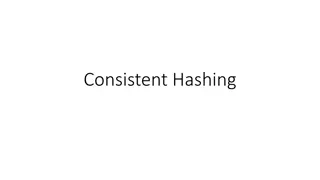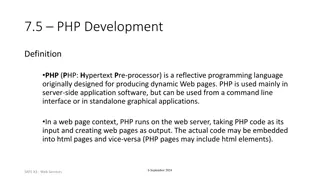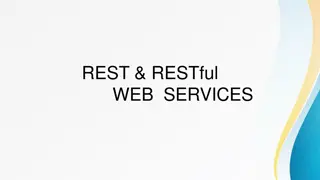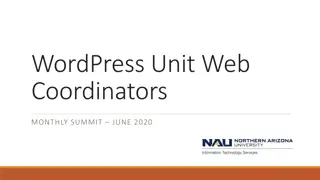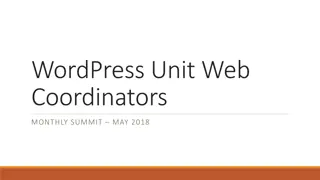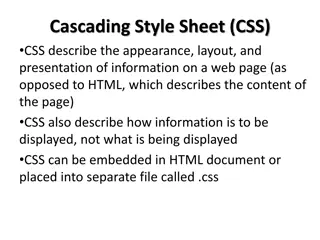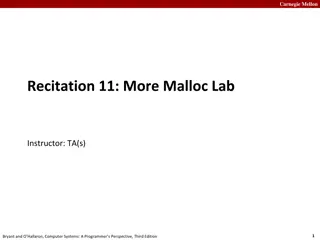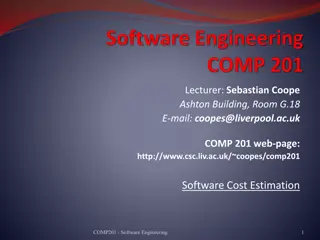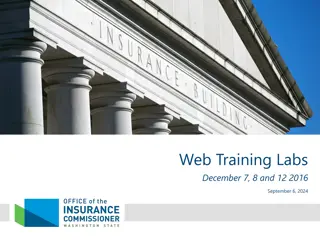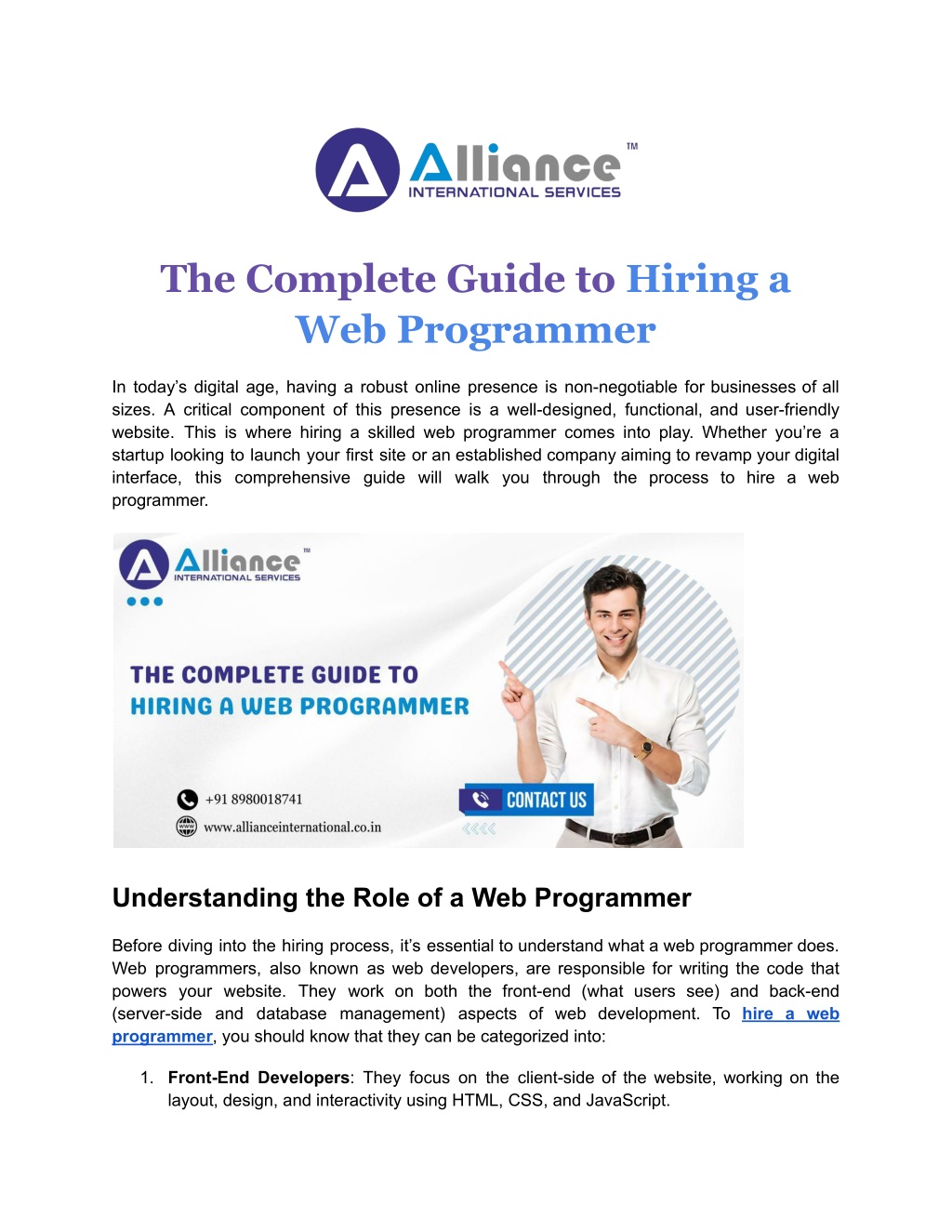
The Complete Guide to Hiring a Web Programmer
Discover essential tips and strategies in our complete guide to hiring a web programmer. Find the right talent to elevate your online presence!
Download Presentation

Please find below an Image/Link to download the presentation.
The content on the website is provided AS IS for your information and personal use only. It may not be sold, licensed, or shared on other websites without obtaining consent from the author. Download presentation by click this link. If you encounter any issues during the download, it is possible that the publisher has removed the file from their server.
E N D
Presentation Transcript
The Complete Guide to Hiring a Web Programmer In today s digital age, having a robust online presence is non-negotiable for businesses of all sizes. A critical component of this presence is a well-designed, functional, and user-friendly website. This is where hiring a skilled web programmer comes into play. Whether you re a startup looking to launch your first site or an established company aiming to revamp your digital interface, this comprehensive guide will walk you through the process to hire a web programmer. Understanding the Role of a Web Programmer Before diving into the hiring process, it s essential to understand what a web programmer does. Web programmers, also known as web developers, are responsible for writing the code that powers your website. They work on both the front-end (what users see) and back-end (server-side and database management) aspects of web development. To hire a web programmer, you should know that they can be categorized into: 1. Front-End Developers: They focus on the client-side of the website, working on the layout, design, and interactivity using HTML, CSS, and JavaScript.
2. Back-End Developers: They handle server-side logic, databases, and application integration, using languages such as PHP, Ruby, Python, and frameworks like Node.js. 3. Full-Stack Developers: These programmers are proficient in both front-end and back-end development, offering a versatile skill set for comprehensive web development projects. Identifying Your Needs Before you start your search, clearly define your project requirements. Consider the following questions: What is the scope of your project? (e.g., building a new website, redesigning an existing one, adding new features) What technologies and platforms do you want to use? (e.g., WordPress, Magento, custom CMS) What is your budget? What is your timeline for the project? By answering these questions, you can create a detailed job description that will attract the right candidates. Where to Find Web Programmers There are several avenues to explore when looking to hire dedicated web developers: 1. Freelance Platforms: Websites like Upwork, Freelancer, and Toptal are excellent places to find freelance web programmers. You can post your project and review proposals from interested developers. 2. Job Boards: Platforms like Indeed, Glassdoor, and LinkedIn allow you to post job listings and reach a broad audience of job seekers. 3. Recruitment Agencies: Specialized IT recruitment agencies can help you find experienced web programmers tailored to your specific needs. 4. Networking: Attend industry events, webinars, and meetups to connect with potential candidates. Personal referrals often lead to reliable hires. Evaluating Candidates Once you ve received applications, the evaluation process begins. Here are some key steps: 1. Review Portfolios: A candidate s portfolio is a showcase of their past work. Look for projects similar to yours and assess the quality and functionality of the websites they ve developed.
2. Check Technical Skills: Depending on your project requirements, ensure the candidate is proficient in the necessary programming languages and frameworks. Consider using technical assessments or coding challenges to evaluate their skills. 3. Assess Problem-Solving Abilities: Web development often involves troubleshooting and problem-solving. Ask candidates about challenges they ve faced in past projects and how they overcame them. 4. Communication Skills: Effective communication is crucial for project success. Ensure the candidate can clearly explain technical concepts and is responsive to feedback. 5. Cultural Fit: If you re hiring for a long-term position, consider whether the candidate s values and working style align with your company culture. Conducting Interviews The interview process is your opportunity to delve deeper into a candidate s experience and suitability for your project. Consider the following types of questions: 1. Technical Questions: Ask about specific technologies and programming languages relevant to your project. For example, How do you optimize a website for performance? or Can you explain the difference between RESTful and SOAP APIs? 2. Behavioral Questions: Understand how candidates handle real-world scenarios. For instance, Describe a time when you had to debug a complex issue. How did you resolve it? or How do you handle tight deadlines? 3. Project-Specific Questions: Discuss details about your project and gauge their understanding. For example, What approach would you take to integrate our new payment system? or How would you ensure our website is mobile-friendly? Making the Offer Once you ve identified the right candidate, it s time to make an offer. Ensure your offer includes: Competitive Salary: Research industry standards to offer a competitive salary that reflects the candidate s experience and skill level. Benefits: Highlight any additional benefits such as health insurance, paid time off, or remote work options. Clear Job Responsibilities: Outline the candidate s roles and responsibilities to avoid any misunderstandings. Growth Opportunities: Emphasize opportunities for professional development and career advancement within your company. Onboarding and Integration A smooth onboarding process sets the stage for a successful working relationship. When you hire dedicated web developers, provide your new hire with the following resources:
Access to Necessary Tools: Ensure they have access to all the tools and software they need to start working. Project Documentation: Share detailed project documentation and any relevant background information. Team Introductions: Introduce them to the team and key stakeholders they ll be working with. Regular Check-Ins: Schedule regular check-ins to address any questions or concerns and provide feedback on their progress. Building a Long-Term Relationship Hiring a web programmer isn t just about completing a single project. It s about building a long-term relationship that can benefit your business in the future. Foster a positive working environment by: Providing Continuous Feedback: Regularly provide constructive feedback to help them grow and improve. Encouraging Professional Development: Support their professional growth by offering opportunities for training and development. Recognizing Achievements: Acknowledge their contributions and celebrate milestones to keep them motivated. Conclusion To hire a web programmer is a critical investment in your business s online presence. By understanding the role, identifying your needs, and carefully evaluating candidates, you can find the right programmer to bring your vision to life. At Alliance International, we believe that the key to a successful hire is clear communication, mutual respect, and a shared commitment to achieving your business goals. With the right programmer on your team, you ll be well-equipped to navigate the digital landscape and drive your business forward. For expert assistance in hiring a web programmer, contact us today! Let us help you bring your vision to life. View Source: https://medium.com/@allianceinternational/the-complete-guide-to-hiring-a-web-pr ogrammer-cd7309a9bc92 Contact Us +91 8980018741 sales@alliancerecruitmentagency.com www.allianceinternational.co.in




